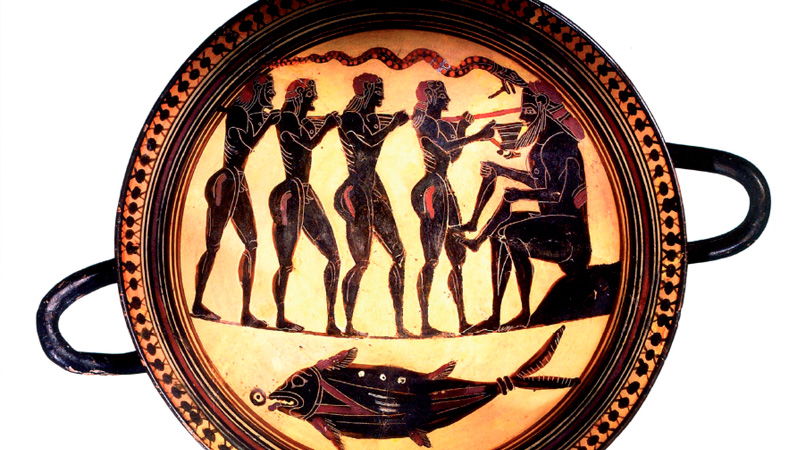The drama of interpreting meaning
Once an actor takes the stage, he is forced to recite his lines. The audience is watching him, and though our leading man may understand more or less the character he represents and may even take a last glance at the script, once the curtain goes up it is time for him to play his role.
Calderón de la Barca understood human existence pre-cisely from the standpoint of this dramatic dimension: man is forced to act, even though he still does not understand well the meaning of what he does, or the one for whom he does it. In the Great Theatre of the World the spectator is the Lord God himself, who sees the way in which each character represents a virtue or vice without yet understanding exactly what he is doing. Similarly, each man also finds himself on the stage of life having to interpret a character, i.e., himself, about whom he still does not understand many things.
The greatest challenge, however, is that the one on stage has no script. In the great theatre of life, where we find such different characters in such varying circumstances, there is no script, and it seems that everything has to be made up. Nothing is written down, and so everything has yet to be written. Freedom has neither decided nor given its response, and one continually finds oneself standing before a new beginning.1 What shall he say, then? The actor, i.e. each man, will have to play his own role by interacting with his stage companions in the drama of the world. Every man is an actor who interprets a drama, but he is also the drama’s author, becoming in a certain way his own father, creating himself anew as he wills by his own free decisions.2
 «We have modern man, who has no idea who man is, in what his perfection consists, and who reduces everything to a radical choice of his own will, whose sole justification is tied to his experience. We find ourselves standing before a man fragmented in a thousand pieces; a thousand different affective moments incapable of offering any sort of intrinsic unity.»
«We have modern man, who has no idea who man is, in what his perfection consists, and who reduces everything to a radical choice of his own will, whose sole justification is tied to his experience. We find ourselves standing before a man fragmented in a thousand pieces; a thousand different affective moments incapable of offering any sort of intrinsic unity.»
Now, if life is ours to fashion, and if neither script nor even a sketch is provided for us pointing out the way to proceed, how are we to accomplish anything beautiful or great in life? Does not affirming the absence of a script imply that everything is merely a grand enigma? And does not this enigma of life give rise to the specter of a great failure?
If it is true that God has not written a script for any man’s life, it is likewise true that he has not left any man alone on the stage, at the mercy of life’s waves which may crash against the shore more or less vehemently in any given situation.
The meaning of life and of happiness
The phrase the meaning of life is meant to bring man’s destiny into focus. When we use the expression “the meaning of life,” what we want to consider is what makes life true and good.3 We are not dealing here with just any truth, but with that specific truth about one’s life that makes it full and complete. Nor are we referring to a fullness that results from a chance success of greater or lesser importance, as often happens in the world of business. The river of life can never be filled with this sort of success, for while such success may be manifold, it is never enough to constitute a successful life taken as a whole.4 Moreover, it should not be forgotten that one might experience a unique fullness even amid failure, as did the Lord himself in his great failure on the Cross. Man, in fact, cannot attain life’s ultimate fullness on his own, for it is offered to him as a gift. Long ago, Aristotle affirmed that happiness was the greatest gift the gods could grant to men.
Questioning the meaning of life therefore involves asking oneself what makes life full and happy, beyond the successes or failures that may occur, and which often do occur without any intervention on our part. Questioning what makes life full and happy, in turn, involves asking oneself what fills one’s actions and activities.5 Happiness is not the simple consequence of acting in order to satisfy one’s expectations and desires, but rather the very fullness that acting itself entails.
In his book Anarchy, State and Utopia (published in the 1960’s), Robert Nozik showed the absurdity of this way of thinking, by appealing to the example of the experience machine.6 He pinpointed the way to show that happiness is something more than satisfaction by imagining a machine capable of satisfying every desire: anyone could plug in, but once you were plugged in, you could not get un-plugged. Who would want to plug into this sort of machine? And would not the fact of wanting to plug into this sort of apparatus be immoral? Why? Well, precisely because whoever plugs in would lose his sense of reality. What we desire, then, is not the mere satisfaction of our desires, but rather the reality of a life full of love, of relationships and of influence on others.
What is it, then, that makes life full? Whence does the meaning that explains the telos, the perfection of a destiny, arise?
The understanding of the telos of each man’s destiny cannot be gained simply through a study of nature. It is true that man’s rational nature points to a telos common to all men, inasmuch as there would be no human perfection unless it included understanding and freedom, dimensions specific to the human animal. It is only in knowledge and freedom that man may become the protagonist of his own destiny. But this is still too generic, and every person is unique and unrepeatable. What appears to be good for all may not appear so to the individual. What one society proposes as good and noble may not be so for another. And what parents propose as good to their children may not be seen as good by them.
The meaning of life, i.e., what fills it with life and goodness, has to be discovered by each man. And this can only happen if a person accepts that he must interpret everything that happens to him. For the meaning of life is unveiled precisely in the events that form it.
Meaning and event
As Macbeth makes his way with Banquo on their journey to Forres, he is startled by three witches who greet him with a most surprising message: “All hail, Macbeth, that shalt be king hereafter!”7 Macbeth, together with his friend, wonders about the meaning of this prophecy. However, it is only when he arrives home and speaks with his wife that he understands it and recognizes himself in the message. His wife, who is seized by ambition, will eventually convince Macbeth to act against the king in order that the prophecy might be fulfilled. And here is Macbeth’s mistake: rather than waiting for destiny progressively to unfold, he forces reality to fit the divination.
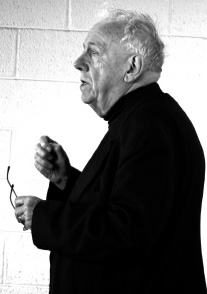 «Alasdair MacIntyre has shown how modern reflection has led to an emotivist conception of man that reduces the person to the “emotivist self.” Who is this man? He is an individual who is incapable of providing any reasons for his conduct, since he has lost any sense of the meaning of the fullness and completion of the human person and of his actions.»Shakespeare did not believe in witches, but his recourse to this image offers him the necessary literary device for opening his protagonist’s horizon. The witches indicate the world of magic, or something beyond rational control. There is something magical about understanding destiny, something that goes beyond reason, since it allows one to understand life as a whole. Thus, the great English writer places his character before a destiny and observes his reactions: this explains the astonishment when, by the instigation of the wickedness of his wife, Macbeth gives way to wild ambition and everything begins to depend on his ideas and abilities. He willed that his destiny be solely the work of his own hands, of his own labor. This, however, reduces destiny to human measure. It is clear from this experiment that he to whom destiny is announced, if he forces it, sets himself on an evil path and becomes a despot king.8
«Alasdair MacIntyre has shown how modern reflection has led to an emotivist conception of man that reduces the person to the “emotivist self.” Who is this man? He is an individual who is incapable of providing any reasons for his conduct, since he has lost any sense of the meaning of the fullness and completion of the human person and of his actions.»Shakespeare did not believe in witches, but his recourse to this image offers him the necessary literary device for opening his protagonist’s horizon. The witches indicate the world of magic, or something beyond rational control. There is something magical about understanding destiny, something that goes beyond reason, since it allows one to understand life as a whole. Thus, the great English writer places his character before a destiny and observes his reactions: this explains the astonishment when, by the instigation of the wickedness of his wife, Macbeth gives way to wild ambition and everything begins to depend on his ideas and abilities. He willed that his destiny be solely the work of his own hands, of his own labor. This, however, reduces destiny to human measure. It is clear from this experiment that he to whom destiny is announced, if he forces it, sets himself on an evil path and becomes a despot king.8
Does such an explanation end up being too distant from the modern world of technology and science? Witches are not an object of belief today either, but we do have to admit that, as in the age of Macbeth, we sometimes experience moments when the future opens up before us and presents itself as something fascinating and attractive. What are these moments? They are the rich experiences that involve the affections. These moments are full of promise, but their meaning and fulfillment are not immediately apparent.9
These moments are ones of truly loving emotion, when a new fullness opens up before us that cannot be attained on our own, but rather only in the joyous company which is given to us, and which allows us to live in harmony. They also occur at those times when fear oppresses man and brings him to experience the magnitude of his destiny and the depth of his own frailty. And they include the occasions when we come to understand the gift that someone makes to the deepest part of man by his presence, creating intimacy and filling the heart with joy; or even the moments when anger takes hold of the heart, when we see the evil of someone who is threatening those whom we love. Such love, such fear, such joy and such anger, together with so many other affections – hope or desperation, desire or distress – are not mere states of mind, emotions without precise intentionality, or sentiments devoid of meaning.
Alasdair MacIntyre10 has shown how modern reflection has led to an emotivist conception of man that reduces the person to the “emotivist self.” Who is this man? He is an individual who is incapable of providing any reasons for his conduct, since he has lost any sense of the meaning of the fullness and completion of the human person and of his actions. The Scottish philosopher offers a fitting analogy, which compares modern man to a castaway who finds himself shipwrecked on a deserted island. He sees pieces of the vessel that transported him make landfall on his island, but what good are these pieces without the idea of the ship, i.e. if he has never seen the ship as a whole? Any attempt to reconstruct the vessel would be impossible under such circumstances.
Here, then, we have modern man, who has no idea who man is, in what his perfection consists, and who reduces everything to a radical choice of his own will, whose sole justification is tied to his experience. We find ourselves standing before a man fragmented in a thousand pieces; i.e., a thousand different affective moments incapable of offering any sort of intrinsic unity.
But is this truly all that feelings are: fragmented moments of life, devoid of any meaning?
They are, in fact, the exact opposite. For something decisive about man is revealed in the affections, which are experienced in the feelings and emotions. They, like the witches of the Shakespearean tragedy, have a decisive hermeneutic value in that they help man to understand himself, the meaning of his life, and what a true and good life really is, a life that is worthy of being sought; or on the contrary, what ruins life and makes it lose momentum. The affections are like “upheavals of thought,” to draw upon the beautiful image of the well-known American philosopher Martha Nussbaum.11 They permit us to go beyond ordinary everyday life and to look out upon the horizon. The destiny of every man is disclosed in his affections.
Stating this, however, implies the need to know how to interpret these affections.12 We may, of course, distinguish “true” sentiments from those which are “false,” and we may certainly recognize 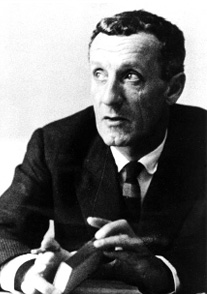 «We may, of course, distinguish “true” sentiments from those which are “false,” and we may certainly recognize that not everything that we feel inside stands on the same plane of existence, and that not everything is true in the same way. We know that within us there are varying degrees of reality, just as outside of us there are “reflections,” “phantasms,” and “things.” Along with true love there is also a false or illusory love, as the great philosopher Maurice Merleau-Ponty stated.»that not everything that we feel inside stands on the same plane of existence, and that not everything is true in the same way. We know that within us there are varying degrees of reality, just as outside of us there are “reflections,” “phantasms,” and “things.” Along with true love there is also a false or illusory love, as the great philosopher Maurice Merleau-Ponty stated.13
«We may, of course, distinguish “true” sentiments from those which are “false,” and we may certainly recognize that not everything that we feel inside stands on the same plane of existence, and that not everything is true in the same way. We know that within us there are varying degrees of reality, just as outside of us there are “reflections,” “phantasms,” and “things.” Along with true love there is also a false or illusory love, as the great philosopher Maurice Merleau-Ponty stated.»that not everything that we feel inside stands on the same plane of existence, and that not everything is true in the same way. We know that within us there are varying degrees of reality, just as outside of us there are “reflections,” “phantasms,” and “things.” Along with true love there is also a false or illusory love, as the great philosopher Maurice Merleau-Ponty stated.13
Interpreting the affections therefore means searching for the truth they conceal, which is not merely the existence of the feeling itself. The truth of affection is not like sincerity; it does not answer the equation: I feel, therefore it is. The spontaneity with which the affections arise may conceal their intentional significance and enclose man within his own emotional intensity. The truth of feelings is revealed when the feeling is placed in relation to the whole of life.14
Interpretation therefore entails looking for the teleology of feeling: seeing where it leads, and how it makes the fullness of life more or less possible.
In order to interpret them rightly, we must first understand that feelings have a teleology, that they are not meant to end in their own inner intensity. And to understand this, a youngster first has to know how to identify this dimension in others.
Stories and meaning
Feelings arise as the fruit of events that happen in life. Man experiences love because a woman strikes him by her personality and beauty; he experiences sadness when the one he loves slips out of his hands; and he experiences anger when someone threatens him.
These are events that have an impact on his subjectivity: reality strikes him and transforms him. But what exactly is this reality? Principally, it is one that is woven out of interpersonal relationships. It is others who affect man and introduce changes in him, knitting together his still vulnerable and delicate inner life.15
Affections, then, are something that happen within man but without him being able to decide on their being there: affections often arise without him being able to plan for them, avoid them or produce them. In this sense, they have something in common with magic, for they cannot simply be deduced by, or reduced to, reason. Their magic resides in their unpredictability. Yet when they do occur, then it is that a man is able to understand their reasonableness, for they have an inherent logos that goes well beyond their being experienced.
At first a person understands this mechanism, not by experiencing it firsthand, but by looking at the stories of others. In the stories we hear as children, we begin to learn that the affections do not end once they are felt, since they generate situations that continue to play out in the story. The child does not yet have a sense of the duration of time or of the continuity of the person: for him everything seems to be spent in the intensity of what he feels; he is continually experiencing new and different things that have but one point of continuity: himself. The intensity with which fear or jealousy, love, hatred or anger present themselves seems to fill and determine the entire space, requiring his complete and immediate adherence.
The child is accustomed to hearing stories from his parents about animals, ancient heroes, or family and friends with whom he may identify. Though still young, he is able to understand how the fear that the soldier felt, and which led him to betray his nation, caused a true disaster for so many; or how Ulysses’ daring to push the limits and go beyond the Pillars of Hercules led to the sinking of his ship and to the death of all his companions. Or again, how Dante’s trust in his beloved moved him to allow himself to be guided along the most beautiful adventure toward heaven ever told, or how the courage of the lion king who, having conquered his fear and his desire to flee, brought peace to his land.
These are stories that, by recounting the lives of others, manifestly show that the affections do not end in themselves, in that particular moment of anger or fear or love;
but rather, that they lead to something that generates a new situation. And it is that something which may determine the preciousness of the affections, or the lack thereof, according to the circumstances. The affections therefore have an intrinsic rationality, which points not only to mere satisfaction, but also to a fullness of the individual with respect to other persons. In dealing with fear, sadness, love, bravery, anger, the need for a response arises that opens to a life more or less true, not only for the individual but also for all those around him. This is how the affections cause a common good to emerge in which each of the different attractions acquires meaning.
One of the great problems of modern storytelling is that, rather than allowing us to glimpse the whole, it only shows us a part, albeit with great intensity. In other words, today all the effort is focused on producing empathy in the spectator, in making him experience what the protagonist experiences, but without any reference to the meaning of this feeling,16 i.e. without reference to what makes the fullness of life more or less possible. However, reducing affections to feelings involves a great impoverishment, precisely because the affections do not appear clearly to reason: they remain largely hidden. With feeling, the important thing is what is experienced; it is the possibility of acting on the basis of what one experiences, unaware of the future and of what the balance in human relationships will be, which matters most. Today the stories presented by the mass media only show a fragment of the story. To a great degree, they involve the viewer affectively, but they obfuscate the possibility of his opening himself to the totality of what the affection contains.
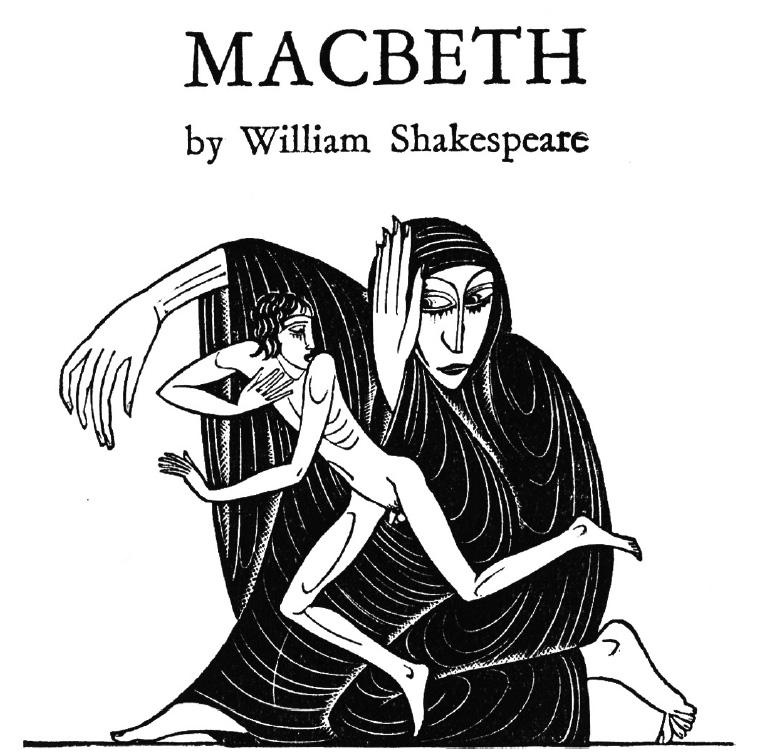 «Macbeth gives way to wild ambition and everything begins to depend on his ideas and abilities. He willed that his destiny be solely the work of his own hands, of his own labor. This, however, reduces destiny to human measure. It is clear from this experiment that he to whom destiny is announced, if he forces it, sets himself on an evil path and becomes a despot king.»
«Macbeth gives way to wild ambition and everything begins to depend on his ideas and abilities. He willed that his destiny be solely the work of his own hands, of his own labor. This, however, reduces destiny to human measure. It is clear from this experiment that he to whom destiny is announced, if he forces it, sets himself on an evil path and becomes a despot king.»
Our purpose here is not to advocate uplifting stories that show us by their happy ending how to resolve difficult situations. What we are attempting to show is that, in order to interpret the affections rightly, we need to allow them to reveal their inherent intentionality rather than hiding the drama they bear. The problem is not that the media portrays violence and eroticism, but rather that they do so in a way that does not allow a person to understand their link, or lack thereof, to man’s destiny. It is only by making this horizon his own that a man will be able to understand whether an affection fragments his life, or instead provides him with a new principle of integration, as he pursues the beautiful thing that has been promised to him in the event of the encounter.
Stories, on the other hand, help us to see the affections in context, whether fear, love, hatred envy, jealously, daring, etc., by allowing the whole story to unfold, and by locating the origin of the affection in behavior that succeeds, more or less, in bringing fullness to life. Indeed, this fullness is already present at source of the affection and determines its own truth as well as the identity of the subject.17
In classical Greece, the adventure of the paideia, i.e., the education of the generations, was carried out precisely by recounting mythological tales and by the tragedies of the theater.18 With these as their instruments, the Greeks succeeded in portraying a whole universe of meaning and in
showing the relationship between a concrete moment and a person’s global destiny.
The outcome of Shakespearean theatre is also to be understood in this light. Certainly these dramas have the particular power or bringing a passion to life on stage, but beyond this their great merit lies in their power to reveal the passion’s anthropological value, i.e. its capacity to render life truly full. Revenge is not what guides the whole of Hamlet. Rather, it is Hamlet’s dilemma over the meaning of a life in which he finds himself having to accept that his own father was murdered by his uncle, in connivance with his own mother, and that now, the very same uncle married her. The drama of revenge is the very need for justice. Hamlet will only be able live a full life by enacting justice; otherwise, his life is ruined and gone mad. His “to be or not to be” refers to an essential question of life, to what makes life human: one cannot live in the kind of relationship in which Hamlet finds himself.
The stories a person hears throughout his life allow him, then, to get a first, external glimpse into the meaning of the great passions of life. They also provide him with an opportunity to identify himself to a greater or lesser degree with their heroes and characters. The first step is for him to understand that the affections do not end in themselves, and that because of this, he will need to know how to interpret them by distancing himself from the affective intensity which accompanies them.
Praxis and Meaning
The second step is to understand that the affection one experiences is a real provocation and challenge to one’s freedom. Indeed, every man is Ulysses or Laocoön, Antigone or Macbeth, Romeo or Don Quixote. Every man is called to respond to the desire for adventure, to the anger, to the
injustice, to the ambition, to the love, to the ideal that he finds in his life. Not to respond is already a response. Every man is an actor on life’s stage, and whether he likes it or not, he is playing a role.
A man’s freedom is challenged and provoked by his affections. However, for freedom to respond appropriately, it has to understand the meaning of the affection; that is, the relationship between the affection and his fulfillment as a human person.
And here we come to the point: a man will never understand this relationship if his free will does not wish to be engaged. What comes first, then, meaning or freedom? If it is true that the meaning of an event challenges and provokes our freedom, it is equally true that one who is unwilling to act cannot understand. To solve the mystery, we need to introduce a new element that explains the ultimate root of human freedom.
What moves our freedom to become involved in this process? Freedom will only make this step if it receives love, if it understands the love that is at play. It is love that awakens freedom, that embraces it and that renews it from within. Therefore, there is a hermeneutic circularity between the event, freedom, meaning and love. Love is the new element that allows us to understand freedom’s dynamism. The stories we listen to can certainly help, but in order truly to understand, we need to be able to perceive the love that is at play; i.e., the love that touches the heart of man and calls him to something beautiful and great.
Within this context, praxis emerges as a qualifying element of truth: not because praxis produces truth,19 but because we are dealing with the truth that touches life in its inner core and which man can understand only if he sets out on the journey.
The first act, then, consists in trusting in the love that is offered, and in the value of the story that is handed on.20
For light to be shed on the meaning of life – on the destiny that makes it so beautiful and great – and for man to desire it and take his proper place therein, he needs continual contact, life lived together, and conversation. Plato explains it in this way: “but after much converse about the matter itself and a life lived together, suddenly a light, as it were, is kindled in one soul by a flame that leaps to it from another, and thereafter sustains itself.”21
Family, Communion and the Communication of Meaning
The importance of a child’s surroundings (and their centrality in helping him grasp the meaning of life) now begins to emerge. These surroundings consist in a collection of irrevocable relationships that cannot be modified without the persons involved changing as well. Intergenerational relations, fatherhood and motherhood, childhood, fraternal bonds, and the relationship between spouses: these are the relationships that allow family members to offer one another irrevocable love based not on the pleasure of the moment or on the satisfaction that the other offers, but on a sharing of life’s fullness, on the communion of persons. This is the context in which a child or youngster is also vulnerable to a whole set of interpersonal relationships that affect and challenge him.
However, because these relationships are based on irrevocable love, they allow the meaning of the affections they generate through daily encounters and skirmishes to emerge.22 The child is called through these events to take responsibility for his own actions and to interpret his own role. He cannot hide behind the fact that he does not understand the meaning of what is happening, because everyone around is continually reminding him of similar stories, and is asking for his own free response, so that the fullness of family life may be theirs. It becomes immediately apparent in family life that the affections do not end in themselves, and that, if it is important to feel them – indeed, if it is beautiful feel them – still everything is not confined to feeling. For in order for family life to go on, all of its members need to act and to build, and not only to feel.
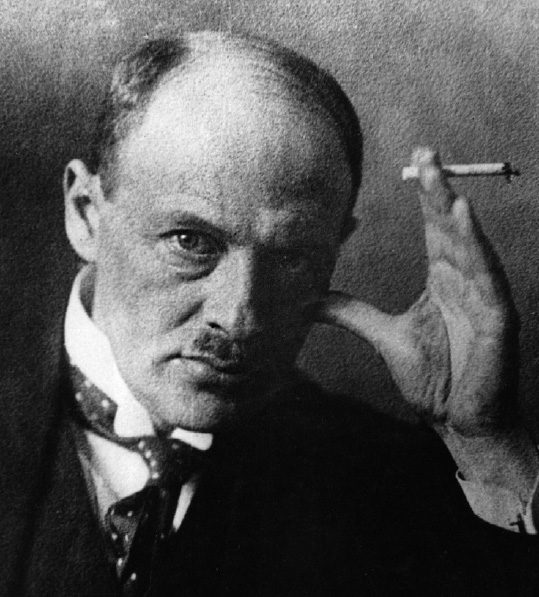 «The great teacher in values, Max Scheler, said of himself as he reflected on his own inner difficulties and the ruin they caused in his life: “I will never forgive God for having made a beast like me.” Communicating meaning therefore means offering a space and a place in a true relationship.»
«The great teacher in values, Max Scheler, said of himself as he reflected on his own inner difficulties and the ruin they caused in his life: “I will never forgive God for having made a beast like me.” Communicating meaning therefore means offering a space and a place in a true relationship.»
Within this context, the child comes to understand that his actions always appear as reactions to the actions of the others. In this way, he begins to conceive of a “family ‘we,’” the common representation everyone offers together, and in which each member has his own specific role to play. The child begins to experience the joy of interacting, according to his own role, in the “family ‘we.’” In accepting this challenge, which brings him out of his own interests and desires, the child – who until then was enclosed within “his good” and identified it with what he liked – begins truly to understand what the true good is, i.e. the common good, the good of a family communion made possible by all its members. From this perspective, we can see how man does not truly know how to say “my good” until he is able to say “our good.”23
Therefore, the role of stories is decisive in so far as they provide a first hint at the meaning of the affections. They thereby direct the affective energy from the outset towards the more excellent ways of experiencing affection, ways capable of fulfilling life, of rendering it full and true, ways worthy of imitation.24 The love a child receives will enable
him to open himself to trust and to act for the sake of the common good, by shaping his desires as never before, so that these very desires stably direct him toward the excellence of behavior that truly fulfills life.
The teleology of love, and the stories that are handed down from one generation to another, allow the meaning of the affective event to emerge.
Conclusion
Education (and the communication of meaning it involves) is not simply a matter of passing on information about values. Educating in values is important, but it has its limits: for it is one thing to learn to appreciate a symphony and quite another to play the violin. The great teacher in values, Max Scheler, said of himself as he reflected on his own inner difficulties and the ruin they caused in his life: “I will never forgive God for having made a beast like me.” Communicating meaning therefore means offering a space and a place in a true relationship.
Education involves a true drama: a drama of reciprocal interaction between individuals in a community of action, which is sustained and guided initially by educators, and whose sole aim is to enkindle a light in the one who is being educated so that he, too, might find his proper place. And this is where assistance in interpreting the affections may come in; these affections have a direct relation to a life full of successful relationships; therefore, they need to be molded and shaped to move in that direction. Macbeth was a victim of an illusion. He himself recognizes this at the end, when he sees the woods surrounding Dunsinane advance toward the castle: “Life’s but a walking shadow, a poor player that struts and frets his hour upon the stage and then is heard no more: it is a tale told by an idiot, full of sound and fury, signifying nothing.”
But are things really this way? Dear Macbeth, you did not interpret well the witches’ saying and, seized by your own ambition, you thought that you had to realize your own destiny. However, destiny is not fulfilled only through the work of one’s hands. And, above all, one’s destiny is never realized by bloodying one’s hands. You lacked a context of true love to interpret well the witches’ words. You perceived as an echo the voice of your wife, who like you was drunk with ambition. You lacked an authentic communion of persons that would have allowed the meaning of something beautiful to emerge.
We can neither understand nor mold meaning by ourselves. It emerges through events, but only within a context of communion, and only if we are provoked and challenged to interact for the sake of the common good. On the stage of life, we will understand what role we are to play if the persons with whom we interpret the drama live out the grandeur and greatness of their relationships in true communion. For it is here that the horizon of fullness that gives meaning to our representation of life emerges.
Translated by Diane Montagna

